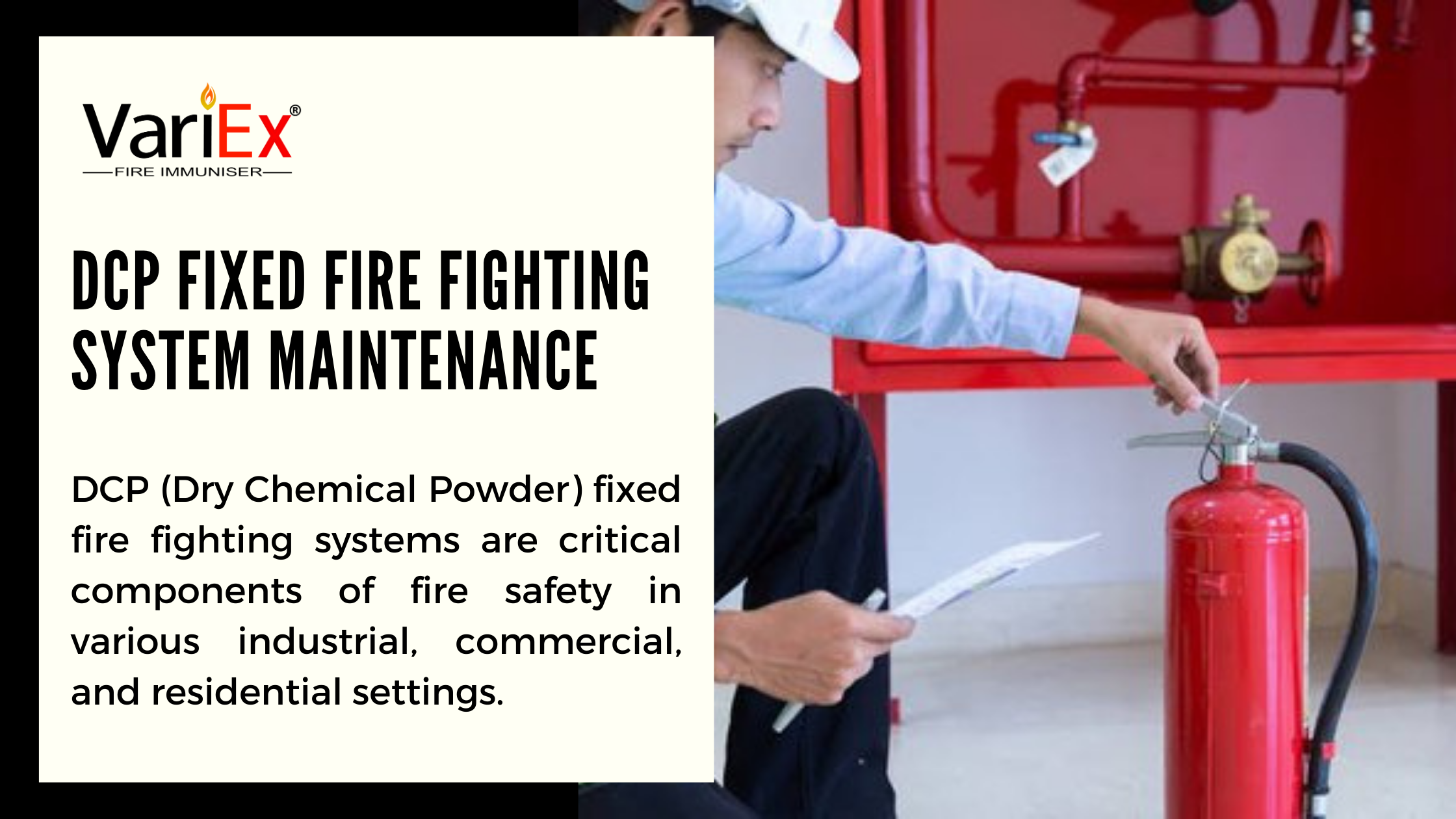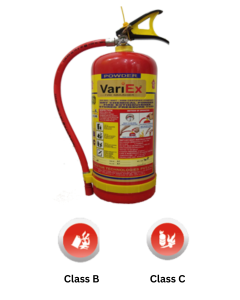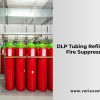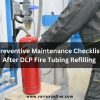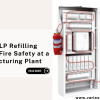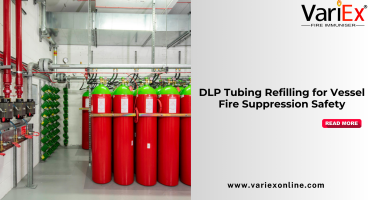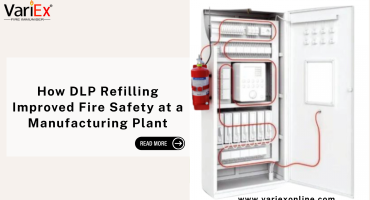![]()
Fire Immuniser
+91-7829629111
Email: info@variex.in
Varistor Technologies Pvt. Ltd.
Block-1, First Floor, Ardente Office One, Hoodi Circle, ITPL Main Road, Bengaluru, Karnataka 560048, IN
DCP Fixed Fire Fighting System Maintenance
DCP (Dry Chemical Powder) fixed fire fighting systems are critical components of fire safety in various industrial, commercial, and residential settings. These systems are designed to rapidly suppress fires by discharging dry chemical powder, effectively smothering the flames. However, to ensure their reliability and effectiveness in emergency situations, regular maintenance is essential.
Importance of Maintenance: Regular maintenance of DCP fixed fire fighting systems is crucial for several reasons:
- Reliability: Proper maintenance ensures that the system will function as intended in the event of a fire, providing timely suppression to prevent property damage and protect lives.
- Compliance: Many jurisdictions require regular inspections and maintenance of fire suppression systems to comply with safety regulations and building codes.
- Longevity: Routine maintenance can extend the lifespan of the system components, reducing the need for costly repairs or replacements.
- Safety: A well-maintained DCP fixed fire fighting system minimizes the risk of malfunctions or failures that could endanger occupants and property.
Components of Maintenance:
1. Visual Inspection:
During visual inspections, trained personnel examine various components of the DCP fixed fire fighting system to identify any signs of damage, corrosion, or obstructions. This includes:
- Checking the condition of cylinders, piping, nozzles, and valves for physical damage or deterioration.
- Ensuring that access to system components is clear and unobstructed.
- Verifying that signage indicating the location and type of fire suppression system is visible and legible.
- Inspecting for any signs of tampering or unauthorized modifications to the system.
2. Functional Testing:
Functional testing involves simulating the operation of the DCP fixed fire fighting system to ensure that all components are functioning correctly. This includes:
- Testing the operation of manual and automatic activation devices to ensure they activate the system as intended.
- Activating flow switches or pressure gauges to confirm that the system receives the appropriate signals for discharge.
- Checking the functionality of control panels and annunciator panels to verify proper operation and communication with the fire alarm system.
- Testing the response time of the system to ensure timely activation and discharge of dry chemical powder.
3. Pressure Testing:
Pressure testing is essential to ensure the integrity of the system's cylinders, piping, and valves, as well as to detect any leaks or weaknesses that could compromise performance. This involves:
- Conducting hydrostatic pressure tests on cylinders and piping to verify their ability to withstand the required pressure.
- Inspecting for signs of leakage at connection points, valves, and fittings.
- Testing pressure relief devices to ensure they function properly in the event of overpressure conditions.
- Conducting leak detection tests using appropriate methods such as pressure decay testing or ultrasonic inspection.
4. Refilling and Recharging:
If the DCP fixed fire fighting system has been discharged or partially discharged, it must be refilled and recharged promptly to restore its readiness for use. This process involves:
- Removing and replacing discharged cylinders or cartridges with fully charged ones.
- Refilling cylinders with the appropriate quantity and type of dry chemical powder as specified by the manufacturer.
- Recharging the system's pressure vessels to the recommended operating pressure.
- Conducting functional tests after refilling and recharging to ensure that the system operates correctly.
5. Documentation:
Accurate documentation of maintenance activities is essential for compliance with regulations, tracking the history of the system's maintenance, and facilitating troubleshooting and auditing processes. This includes:
- Maintaining records of visual inspections, functional tests, pressure tests, and any repairs or replacements performed on the system.
- Documenting the date, time, and findings of each maintenance activity, as well as the names of personnel involved and any corrective actions taken.
- Retaining copies of manufacturer's manuals, installation drawings, and maintenance instructions for reference.
- Ensuring that documentation is organized, up-to-date, and readily accessible to authorized personnel and regulatory authorities.
Frequency of Maintenance: The frequency of maintenance tasks for DCP fixed fire fighting systems may vary depending on factors such as system size, environment, and regulatory requirements. However, some general guidelines include:
- Monthly visual inspections
- Quarterly functional testing
- Annual pressure testing
- Refilling and recharging as needed
- Documentation after each maintenance activity
Conclusion: Regular maintenance of DCP fixed fire fighting systems is essential to ensure their reliability, compliance with regulations, and effectiveness in suppressing fires. By implementing a comprehensive maintenance program that includes visual inspections, functional testing, pressure testing, and documentation, building owners and managers can help safeguard lives and property against the devastating effects of fire. By implementing a comprehensive maintenance program that incorporates these components, building owners and managers can ensure the reliability, compliance, and effectiveness of their DCP fixed fire fighting systems in safeguarding lives and property against the threat of fire.
Frequently Asked Questions
Regular maintenance is crucial to ensure the reliability and effectiveness of DCP fixed fire fighting systems in suppressing fires. It helps identify and address any issues that could compromise the system's performance, ensuring it is ready to respond promptly in an emergency.
The frequency of inspections may vary depending on factors such as system type, environment, and regulatory requirements. However, as a general guideline, visual inspections should be conducted monthly, while functional tests and pressure tests are typically performed quarterly or annually.
Maintenance tasks should be performed by qualified and trained personnel with knowledge of fire suppression systems and relevant safety standards. This may include in-house maintenance staff or external contractors specializing in fire protection services.
Maintenance activities typically include visual inspections to check for damage or obstructions, functional testing to ensure proper operation, pressure testing to detect leaks, and refilling/recharging if the system has been discharged. Documentation of maintenance activities is also essential for compliance and record-keeping purposes.
Neglecting maintenance can lead to various problems, including decreased reliability, increased risk of system failure during a fire, potential non-compliance with regulations, and higher repair or replacement costs in the long run. It may also compromise the safety of occupants and property.
Final Say
At VariEx.in and VariexOnline.com, we specialize in supplying and installing top-quality fire fighting systems and equipment. From fire extinguishers to advanced suppression systems, we offer comprehensive solutions tailored to your needs. Our experienced team ensures precise installation and maintenance for optimal safety.
Trust VariEx for reliable fire protection. Contact us online or call 7829629111 to learn more.
"WHAT YOU CAN READ NEXT"
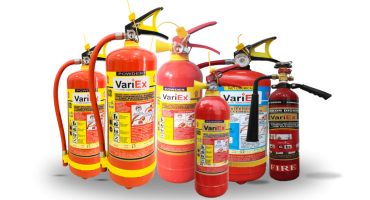 Read more +24 November 2023 in Fire Extinguisher
Read more +24 November 2023 in Fire ExtinguisherWhat types of fire extinguishers are available for different fire classes?
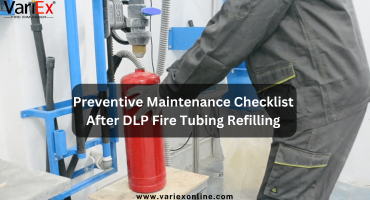 Read more +11 July 2025 in Fire Suppression
Read more +11 July 2025 in Fire Suppression

